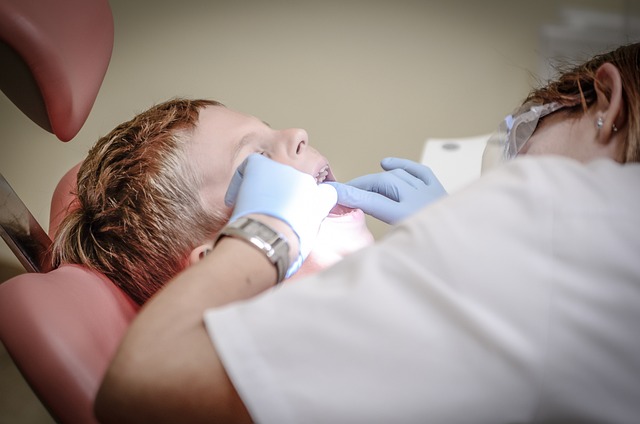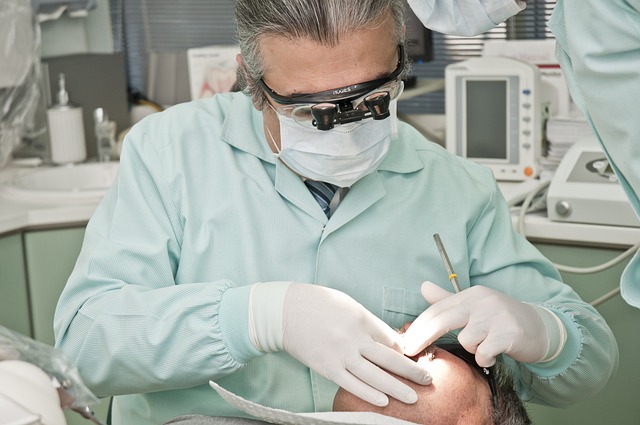Plavix and Dental Extractions: What to Consider
Welcome to the world of dental extractions! We understand that having a tooth removed can evoke feelings of anxiety and uncertainty. That’s ????why we’re here to guide you and provide you with the essential information you need. If you’re one of the millions of people taking Plavix, a widely prescribed blood thinner, you might be wondering how it could potentially affect ????your upcoming dental extraction procedure. Fear not! In this article, we will walk you through everything you need to know ????about Plavix and dental extractions,???? including ????important considerations you should keep ????in mind. So sit back, relax, and let???? us enlighten you on this ????topic to help you ????make well-informed decisions and ensure a smooth dental extraction process.
1. Understanding the Importance of Dental Extractions and ????Plavix Medication
Dental extractions are common dental procedures performed to remove a tooth or multiple teeth from the mouth. While the thought of tooth extraction may ????seem daunting, it is essential to understand the importance and benefits of this procedure. Dental extractions are typically recommended in cases ????of severe tooth decay, gum disease, or to create space for???? orthodontic treatment. Extractions can also prevent the spread of infection and alleviate pain caused by impacted wisdom teeth.
???? If you are ????taking Plavix medication, it is crucial to inform???? your dentist before a dental extraction. Plavix, also known as clopidogrel, is a medication commonly prescribed to ????prevent blood clots and reduce the risk of heart attacks and strokes. As Plavix affects blood clotting, it is essential for your dentist to be aware of this medication to take necessary ????precautions during the extraction. Your dentist will???? work closely with you and your healthcare provider to make an informed decision???? and develop an appropriate treatment plan to ensure a safe dental extraction while minimizing any potential risks.
????
- Benefits of dental extractions:
-
– Removal of damaged or decayed teeth
-
– Relief from dental pain and discomfort
-
– Prevention of infection and further oral health issues
????
2. ????Plavix and its Impact???? on Dental Experiences: What You ????Need???? to Know
If you are taking Plavix, an antiplatelet medication used to prevent heart attacks and strokes, it is important to understand its potential impact on your dental experiences. Plavix works by preventing blood clotting, which can be crucial for individuals with certain cardiac conditions. However, when it comes to dental treatments, this medication may raise some concerns. Here’s what you need to know:
1. Increased risk of bleeding: Plavix can increase the risk of bleeding, making dental procedures that involve any form of incision or manipulation of the ????gums more challenging. It’s crucial to inform your dentist about your medication before any dental treatment, as they???? can take necessary precautions and monitor bleeding during and after the procedure. Your dentist may ask you to stop taking Plavix a few days before a complex dental surgery to minimize the potential for excessive bleeding.
2. Communication with your healthcare team: ????It is essential to maintain open communication between your dentist and your prescribing doctor to ensure the best ????possible care. If you are scheduled for a dental procedure, let both your dentist and doctor know about each other’s recommendations. This way, they can collaborate and determine the most appropriate course of action while accounting for your dental needs as well as your cardiac condition and???? Plavix medication.

3. ????Preparing for Dental Extractions while Taking Plavix:???? Essential Considerations
Before ????scheduling your dental extraction:
If you are currently taking Plavix (generic name: clopidogrel)???? and need a dental extraction, it's crucial to take a few necessary precautions. The following considerations???? will help ensure a safe dental procedure while you continue your ????Plavix medication:
- Consult your healthcare provider: Before scheduling your dental extraction, it's important to inform your healthcare provider about your Plavix medication. They will assess your specific case, review your medical history, and provide guidance on ????whether any changes need to be made.
- Discuss the potential risks: Your healthcare provider???? will discuss with ????you the potential risks of???? undergoing a dental extraction while on Plavix. They will???? weigh the benefits of the extraction against the potential risk of bleeding complications. This will help in the decision-making process and allow you to ????make an informed choice.
- Coordinate with your dentist and hematologist: It's essential to inform your dentist and hematologist about each other's recommendations. Collaborating with both professionals will enable a thorough assessment of your overall health and ensure that all???? aspects of the procedure are considered.
- Timing of the procedure: Your dentist and healthcare provider might suggest adjusting the timing of your dental extraction. They may recommend scheduling it at a time when your Plavix dosage can be temporarily discontinued to reduce the risk of bleeding complications.
Preparing for the dental extraction:
Once???? your healthcare provider and dentist have examined your case???? and agreed upon the necessary precautions, you???? can prepare confidently for your dental extraction. Below are essential steps to ????follow:
-
????
- Follow medication instructions: Take your Plavix medication exactly as prescribed, without any alterations or omissions, up until the day of???? the ????extraction. Inform your dentist ????about your last dose taken.
- Inform your dentist about bleeding ????history: Inform your dentist if you have experienced excessive bleeding during previous dental procedures or ????any other medical interventions. This information will help them take additional precautions if necessary.
- Communication is ????key: Maintain open ????communication with your???? dentist throughout the process. Let them know if you experience any unusual side effects or have concerns leading up to the dental extraction.
- Bring your medications: On the day of the extraction, bring your???? Plavix medication with you, even if you are temporarily???? off the medication. This will allow your dentist to review ????the details and ensure accurate records.
Please note: The information provided here serves as a general guide. Your???? specific situation may require additional considerations based on your medical history and healthcare provider's ????recommendations. Always consult your healthcare provider and dentist for personalized advice before undergoing any dental procedure while taking Plavix.
4. Ensuring Safety and Successful Dental Extractions with Plavix
Dental extractions can be a necessary procedure for patients taking ????Plavix, a medication commonly prescribed to prevent blood???? clots. It is important to ensure both safety and successful outcomes during these extractions. Here are some key considerations:
- Consultation with the healthcare provider: Before scheduling a dental extraction, it is crucial to discuss???? your Plavix medication with your healthcare provider. They can provide specific guidance based on your medical history and the reason you are taking Plavix.
- Timing of the extraction: Your healthcare ????provider ????might recommend adjusting the timing of your dental extraction to minimize the risk of bleeding complications. It may be necessary to temporarily stop taking Plavix or adjust the dosage before the procedure.
- Special precautions during the procedure: Inform your dentist about your Plavix medication and???? any other blood-thinning medications you may be taking. Your dentist can take precautions, such as using hemostatic agents or applying firm pressure on the extraction site???? to control bleeding.
Follow-up ????care: After the dental extraction, it is essential to diligently follow your dentist’s instructions for post-operative care. This may include maintaining good oral hygiene, avoiding certain foods or activities, and taking any???? prescribed medications to minimize the risk of complications and promote healing.

5. Discussing Plavix with Your Dentist: Open Communication ????for Optimal Oral Health
When it ????comes to maintaining optimal oral health, open communication with your dentist is crucial, especially if you are taking a medication called Plavix. Plavix, also known as clopidogrel, is commonly prescribed to reduce???? the risk of heart attack and???? stroke, but it can also affect your dental health. To ensure that you receive the best possible dental care while taking Plavix, it is???? important to discuss it with your dentist.
During your???? dental visit, make sure to inform your dentist about your Plavix medication. Openly discussing your medical history enables your dentist to tailor the treatment specifically to your needs. Here are a few key points to mention and discuss with your dentist:
- The reason why you are taking Plavix
- The dosage and frequency of medication
- Specific???? concerns or questions you have about Plavix and dental procedures
It’s important to be aware that Plavix can potentially increase bleeding and affect???? blood clotting. This information can help your dentist develop appropriate treatment plans and prescribe any necessary ????precautions to reduce the risk of excessive bleeding during dental procedures. Remember, your dentist is there to help you maintain optimal oral health, so open communication is vital for your well-being.

6. Navigating Dental Implants and Plavix: Expert Guidelines
Dental implants are a popular choice for replacing missing teeth in???? individuals with Plavix therapy. If you’re considering dental implant surgery and have concerns about how it may interact with your Plavix medication, the following expert guidelines can provide you with the necessary information:
1. Consult your healthcare provider: Before undergoing dental implant surgery, it is crucial to consult your dentist and healthcare provider. They will evaluate your medical condition, including your Plavix therapy, and ????provide you with personalized guidance on the potential risks and benefits. They can help determine if any alterations ????are needed to your Plavix???? regimen before and after the procedure.
2. Full ????disclosure of medications: Make sure to provide a complete list of all medications you are taking, including Plavix, to your dentist and healthcare provider. This ????will enable them to assess the potential interactions and adjust your treatment plan accordingly. Additionally, inform them of any changes in your medication regimen, as it might influence the timing of your dental implant surgery.
7. Delaying Dental Extractions while on Plavix: Weighing the Risks and Benefits
When it comes to dental extractions, patients often have concerns if they are taking Plavix, a commonly prescribed blood-thinning medication. While Plavix is essential for preventing blood clots and maintaining overall???? heart ????health, it’s important to carefully consider the potential risks and benefits of delaying dental extractions while on this medication.
Risks:
-
- Increased???? bleeding: Plavix, as a blood thinner, can prolong bleeding time. Delaying dental extractions while on Plavix reduces the risk of excessive bleeding during the procedure.
- Higher chances of developing blood clots: If a patient stops taking Plavix abruptly before dental extractions, there is a possibility of developing blood clots. These clots???? can cause serious health issues, such as heart attacks or strokes.
- Incomplete healing: Plavix may slow down the healing process after dental extractions. By delaying the procedure, patients can give their bodies a better chance to heal properly.
????
Benefits:
-
- Reduced???? bleeding risk: Delaying dental extractions while on???? Plavix minimizes the chances of post-extraction bleeding, ensuring a smoother and more comfortable recovery period.
- Enhanced safety: By collaborating with your dentist and healthcare provider, you can create a treatment plan ????that factors in your Plavix usage, ensuring the procedure is as safe as possible.
- Better overall outcomes: By considering the risks ????and benefits, delaying dental extractions allows for a more individualized and informed decision, resulting ????in optimal oral health outcomes.
????
8. Collaborative Care: Coordinating between Your Dentist and Cardiologist
When it comes to managing your oral health, it’s important to ????consider how it may interact ????with your overall well-being. Collaborative care between your dentist???? and cardiologist can play a vital role in coordinating your dental and heart health. ????Here are some ????key aspects to keep in mind when it comes to this collaboration:
- Communication: Ensuring clear communication between your dentist and cardiologist is crucial. Share any relevant medical???? history, medications, or treatments with both professionals so they can have a comprehensive understanding of your health.
- Routine Check-ups: Regular dental check-ups are important for everyone, but especially for those with heart conditions. Your dentist can monitor your oral health, detect any issues early on, and collaborate with your cardiologist to determine the most suitable treatment plan.
- Medication Consultation: Some medications prescribed for heart conditions can have oral side effects, such as dry mouth or gum problems. By coordinating with your cardiologist, your dentist can make adjustments to your dental care routine and recommend appropriate preventive measures.
????
Remember, your dentist and cardiologist are here to support your overall health and well-being. Collaborative care allows them to work together to develop a ????tailored plan that ensures your dental and heart health are both considered. Whether it’s scheduling appointments, sharing information, or discussing treatment options, this coordination helps provide you with the best care possible.
9. Managing Bleeding Risks during Dental Extractions with Plavix
Managing bleeding risks during dental extractions is crucial, especially for individuals taking ????Plavix. Plavix, also???? known as clopidogrel, is a commonly prescribed medication that helps prevent blood clots. While it plays a vital role in preventing heart attacks and strokes,???? it can ????also increase the risk of bleeding during dental procedures. However, with proper precautions and techniques, dental extractions can be safely performed for Plavix users.
Here are some essential tips to manage bleeding risks when undergoing dental extractions while taking Plavix:
-
- Discuss with your dentist and healthcare provider: It’s crucial???? to inform your dentist and healthcare provider about your Plavix usage. They can evaluate your specific case and determine the best course of action.
- Thoroughly review your medical history: Ensure your dentist has ????a clear understanding of your ????medical history, including any bleeding disorders or previous incidents of excessive bleeding.
- Adjust medication if necessary: In some cases, your healthcare provider may recommend altering your Plavix dosage before the dental extraction. It’s important to follow their guidance ????closely.
- Consider timing of the procedure: Your???? dentist ????and healthcare provider may determine ????the optimal time for the dental extraction based on your Plavix dosage and any other medications you may ????be taking.
Remember, Plavix plays a vital role in your overall health, so always consult with your dentist and healthcare provider to ensure the safe and effective management of bleeding risks during dental extractions.
10. Promoting Oral Health for Patients???? on Plavix: Routines and Recommendations
Ensuring good oral health is crucial for patients taking Plavix, a medication commonly prescribed to prevent blood clots. By ????maintaining a proper oral hygiene routine and following specific recommendations, patients on Plavix can reduce their risk of oral infections and other ????dental complications. Here are some routines and recommendations to???? promote oral health:
1. Regular brushing and flossing: Brush your teeth at least twice a day with a soft-bristled toothbrush and fluoride toothpaste. Remember to gently floss???? every day to remove plaque and food particles from between your teeth.
2. Gentle toothbrushing technique: Use gentle, circular ????motions to brush???? your teeth and gums. Avoid brushing too vigorously, as it may cause???? gum irritation or bleeding. Give extra attention to brush around the gumline and the back teeth.
3. Regular dental check-ups: Visit your dentist every six months, or as recommended by your dental professional. Regular check-ups allow early detection and???? treatment of any oral health issues, preventing them from worsening.
4. Use an antiseptic mouthwash: Rinse your mouth with an antiseptic mouthwash to help reduce bacteria and maintain fresh breath. Look for a mouthwash that doesn’t contain alcohol, as it can cause dry mouth.
5. Avoid tobacco and limit alcohol consumption: Smoking and alcohol can further increase the risk of oral health problems. Quitting smoking and minimizing alcohol intake can significantly improve???? overall oral???? health.
Frequently Asked Questions
Q: What is Plavix, and why is it important to consider it before undergoing dental extractions?
A: Plavix, also known as clopidogrel, is a prescription medication primarily used to prevent blood clots. It is crucial to consider Plavix before dental extractions because it affects how ????your blood clots, potentially leading to excessive bleeding during and after the procedure.
Q: Is it necessary to inform my dentist if I am taking Plavix?
A: Absolutely! It is essential to inform your dentist about any medications you???? are taking, including Plavix. Your dentist must be aware of???? this medication to ensure proper management???? during your dental extraction to minimize bleeding risks and provide you with???? safe and effective treatment.
Q: Can Plavix be stopped temporarily for dental extractions?
A: Stopping or altering ????your Plavix regimen should only be done under the guidance of your prescribing healthcare provider. It is generally not recommended to stop Plavix, as it increases the risk of blood???? clot formation. However, your dentist and healthcare provider can work together to determine ????the best course of action based on your specific medical needs.
Q: What precautions???? should I take if I am taking Plavix and need a dental extraction?
A: If you are taking Plavix and require a dental extraction, it is???? essential to inform your dentist ahead of time. They may coordinate with your healthcare provider to potentially???? adjust your medication regimen, if necessary. Additionally, your dentist might advise you to rinse with a saltwater solution before and after the extraction to help reduce the risk of infection.
Q: Are there any alternatives to Plavix for preventing blood clots during dental extractions?
A: Depending on your medical condition, your healthcare provider may ????recommend alternative medications or techniques to minimize the risk of blood clots ????during dental extractions if stopping Plavix is not feasible. It is crucial to consult both your dentist and prescribing healthcare provider to determine the best approach for your specific situation.
Q: How can dentists ensure a safe dental extraction for patients taking Plavix?
A: Dentists can take several measures to ensure a safe dental extraction for patients???? taking Plavix. These may include scheduling the procedure at a time when the patient’s platelet activity is at its lowest, using appropriate local anesthesia to ensure pain control, and closely monitoring patients for any signs of excessive bleeding during and after the extraction.
Q: Is it safe to resume taking Plavix after a dental extraction?
A: It is generally safe to resume taking Plavix as prescribed after a dental extraction. However, it is essential to follow your healthcare???? provider’s instructions and any recommendations???? made by your dentist regarding the timing and continuation of your medication regimen.
Q: What signs should I look out for after a dental extraction, especially when taking Plavix?
A: After a dental extraction, it is important to watch for signs of excessive bleeding, which may include prolonged bleeding after applying pressure, severe or uncontrolled bleeding, or blood in your saliva. If you experience any of these symptoms, it is crucial to contact your dentist or healthcare provider immediately.
Q: Can I still ????undergo dental extractions if I have been prescribed Plavix?
A: Yes, it is generally possible to undergo dental extractions while taking Plavix. However, it is ????important to have open???? communication between your dentist and healthcare provider to ensure proper coordination and???? minimize the risk of complications. Always consult with both professionals to determine the best course of action for your specific???? situation.
Conclusion
In conclusion, when it comes to dental extractions and the use of Plavix, there are important considerations to keep in mind. It is crucial to inform your dentist about any medications you are taking, including Plavix, to ensure a safe and successful procedure. While ????Plavix may increase the risk of bleeding, ????your dentist can work with you and your healthcare provider to implement appropriate precautions. This might involve altering the timing of your dosage or incorporating additional preventive measures. Remember,???? your oral health and overall well-being go hand in hand, so open communication with your dental team and healthcare professionals is key. By staying informed and working collaboratively, you can navigate dental extractions while on Plavix???? with confidence. So,???? don’t let any apprehensions hold you back from seeking ????the dental care you need – your smile deserves it!






